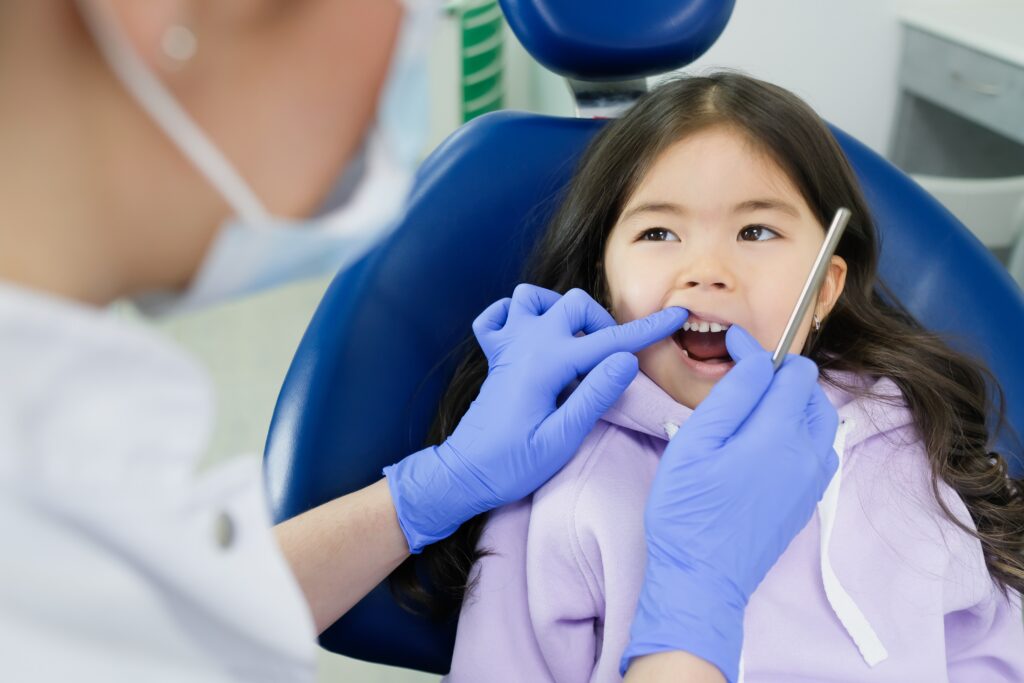Pediatrics Dentistry
Primary, or "baby" teeth not only help children speak clearly and chew naturally, they also aid in forming a path that permanent teeth can follow when they are ready to come in.

Your child’s oral health is very important. Primary, or “baby” teeth not only help children speak clearly and chew naturally, they also aid in forming a path that permanent teeth can follow when they are ready to come in. Having a professional who is trained in the area of Pediatric Dentistry examine their mouth early will prevent troubles down the road. The American Academy of Pediatric Dentistry recommends that you schedule your child to see a Pediatric Dentist after their first tooth shows or before their first birthday.
Studies and research have concluded on the importance of starting children early in their lives with good dental hygiene and oral care. According to research, the most common chronic childhood disease in America is tooth decay, affecting 50 percent of first-graders and 80 percent of 17-year-olds. Early treatment prevents problems affecting a child’s health, well-being, self-image and overall achievement.
The National Institute of Dental & Craniofacial Research estimates that children will miss 52 million hours of school each year due to oral health problems and about 12.5 million days of restricted activity every year from dental symptoms. Because there is such a significant loss in their academic performance, the Surgeon General has made children’s oral health a priority.
Parents are responsible for ensuring their children practice good dental hygiene. Parents must introduce proper oral care early in a child’s life—as early as infancy.
The American Dental Hygiene Association states that a good oral hygiene routine for children includes:
- Thoroughly cleaning your infant’s gums after each feeding with a water-soaked infant cloth. This stimulates the gum tissue and removes food.
- Use a toothbrush with soft bristles and a small strip of fluoride toothpaste, unless the child is under the age of 3. If a child is younger than age 3, parents should clean their child’s teeth with water and a soft-bristled toothbrush. After age 3, parents should supervise brushing. Use no more than a pea-sized amount of toothpaste and make sure children do not swallow excess toothpaste.
- Once any two of your child’s teeth touch each other, it’s time to start flossing. Flossing helps prevent cavities by removing plaque and food particles caught between teeth. It should be an important part of your child’s dental routine.
- Regular visits with their dentist to check for cavities in the primary teeth and for possible developmental problems.
- Encourage your child to discuss any fears they may have about oral health visits, but do not mentioning words like “pain” or “hurt,” since this may instill unnecessary fear.
- Asking your hygienist or dentist about sealant applications to protect your child’s teeth-chewing surfaces and about bottle tooth decay, which occurs when teeth are frequently exposed to sugared liquids.
